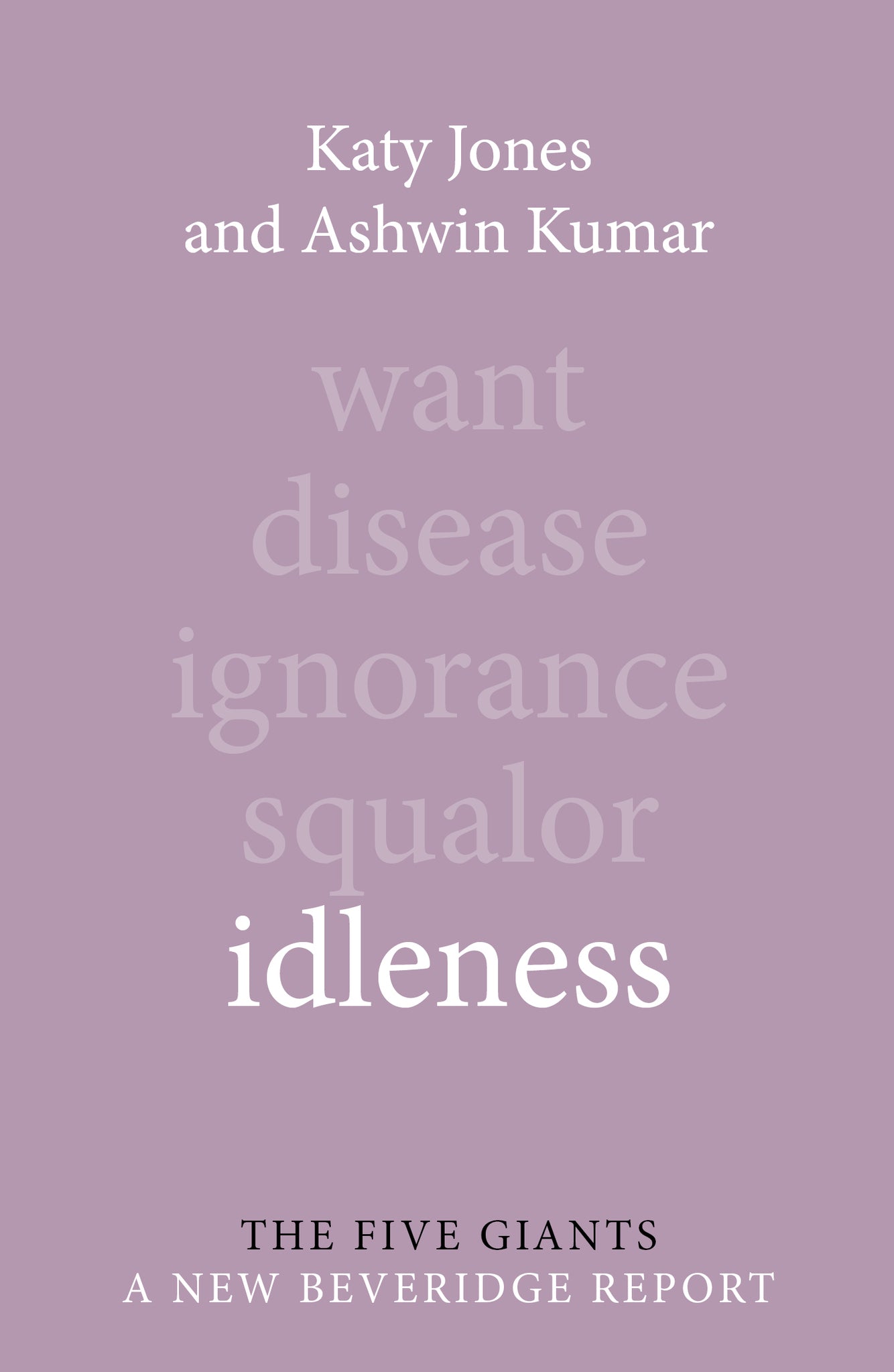We're sorry. An error has occurred
Please cancel or retry.
Idleness

Some error occured while loading the Quick View. Please close the Quick View and try reloading the page.
Couldn't load pickup availability
- Format:
-
20 October 2022

UK workers are stuck in a low-pay, low-productivity rut, with far too many people working in poor quality, insecure jobs, with little training or chance of getting on. Katy Jones and Ashwin Kumar question the mantra that “work is the best way out of poverty” and examine the in-work poverty that now defines employment for many.
The state’s engagement with people out of work is shown to ignore the needs of lone parents and disabled people, and has little concern for skills and career progression. When coupled with the degradation of social infrastructure, such as child care and transport, the barriers to quality work can become insurmountable. Jones and Kumar’s insightful analysis reveals the need to move away from positioning unemployment as a “behavioural problem” to be corrected by coercive labour market policies to one that considers the wider obstacles to better paid, quality jobs.

POLITICAL SCIENCE / Public Policy / Social Policy, Political economy

Idleness nails the myth that any job – no matter how insecure or poorly paid – is better than no job. It sets out a compelling case that empowering workers and improving the quality of work can help drive productivity and sustainable growth.
Introduction
1. A changing labour market: from Beveridge to Brexit
2. Productivity
3. Good work
4. Supporting people into work: a brief history
5. Employment policies today
6. Employment gaps
7. Supporting low-paid workers
8. Skills and progression
9. Social infrastructure
10. State regulation
Conclusion: what needs to change?



